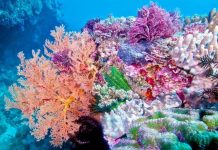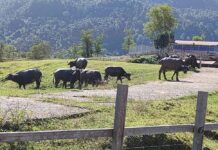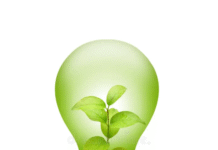SEAGRASS meadows reduce bacteria pathogenic to humans and marine life by up to 50%, a new study shows.
What’s more, corals located near seagrass meadows exhibit only half the prevalence of disease.
These findings highlight the importance of seagrass ecosystems to the health of humans and other organisms; not only could they help with improving water quality in ever more populated coastal zones, they could also play a key role in sustaining the rapid increase of aquaculture in the face of global food shortages.
Dr Joleah Lamb at Cornell University in Ithaca, New York and colleagues found out that removing human pathogens from water is essential for human health. Plants, with their natural biocides, play a vital role – one that can offer significant economic benefits.
For example, in recent years, New York City opted to purchase and restore wetland habitat in the nearby catchment instead of building an $8 billion treatment plant, saving billions in capital and ongoing costs.
Although seagrasses are known to produce natural antibiotics, they have not been evaluated for their ability to remove pathogens from the ocean, or for their ability to mitigate disease there.
Lamb and colleagues worked in waters off four Indonesian islands sought to assess the influence of seagrass on marine microbial pathogens and disease – an effort in part inspired by many of their team first falling ill in this location.
In shorewaters, the researchers found the presence of the bacteria Enterococcus to exceed the US EPA recommended human health risk exposure level by ten-fold. Levels of Enterococcus were reduced three-fold, however, in the presence of seagrass.
Further studies revealed that the abundance of several marine fish and invertebrate pathogens was also lower when seagrass was present – by 50%. And, field surveys of over 8,000 reef-building corals adjacent to seagrass meadows showed two-fold reductions in disease compared to corals without seagrass neighbors.
Global loss of seagrass meadows is estimated at 7% each year since 1990, the authors say, and they hope their work highlights the importance of conserving this ecosystem. This study appeared on Feb 17 issue of Science, published by American Association for the Advancement of Science.

















